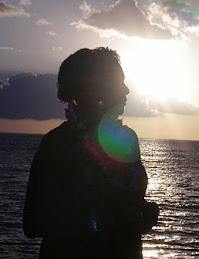Every working person has had that moment where you wonder “What am I doing here?”
In fact, the question usually surfaces hundreds of times during the course of our working lives. Sometimes it’s a nagging thought, sometimes it’s like a stalker and sometimes it reaches critical mass, hitting us upside the head like a ball peen hammer.
The question can be sparked by any number of circumstances, alone or in combination. Like the realization that time has been passing without any career plan or direction. Or it can be one missed promotion too many. Too little growth. Too much responsibility with too few resources. Too many jerks. Too little passion. Too much anxiety. Too little money. Too many signals that the company or the industry is going south.
Payton’s critical “What am I doing here?” moment was triggered by a number of factors. She’d enjoyed a long, successful career in journalism, with many awards to her credit. Her reporting had achieved recognition across her region and beyond. She had earned the respect of the people she covered and the audience she served, with a reputation for fairness.
Yet. The media business continued to be buffeted by the tsunami forces of shrinking audience and revenues, and Payton’s shop was no exception. Her newsroom was being tasked to provide more and more content, with fewer resources. Payton’s specialty – in-depth reporting on disadvantaged communities – was being marginalized. And in an industry that celebrates youth, her years of experience suddenly seemed like a liability.
So when a government executive offered the chance to work on policies affecting the communities she’d come to care about, Payton decided her combination of circumstances practically ordained her choice. She leapt into public service.
Countless journalists have made similar transitions. And even though most people define reporters as impartial and detached, the truth is that most journalists are drawn to the profession by qualities like curiosity and a desire to affect change through their reporting. The best investigative reporters are passionate and dogged in their pursuit of the facts. They couldn’t be effective if they weren’t.
The idea of moving from observer to policy maker can be awfully seductive. And it can take on the patina of fantasy. Because of your direct involvement, you begin to create a vision of success. And better still, that success is within your control, because now you’re on the inside, where decisions are made and things happen.
Unless they don’t. Payton soon began to realize that the legislator’s vision of policy change was far different from her own, in both direction and pace. The access she assumed she’d have turned out to be more assumption than reality. It was hard to tell whether she was observing conflicting government interests, or simply a lack of interest. Within months, she found herself feeling marginalized, ineffective and powerless.
Worst of all, Payton felt inauthentic. As though she had given up a core piece of herself in order to pursue what seemed to be a greater good. Before she knew it, she was right back at critical mass with the question “What am I doing here?”
This story has a happy ending. Because of the way Payton left her reporting job, the door was open when she inquired about her former position. And after discussions with her old boss, the decision to return to the newsroom was as clear as her decision to leave.
There are no bad decisions in Payton’s journey. She was right to pay attention to her internal question “What am I doing here?” She was right to evaluate herself and her career, to weigh her job options against her values and priorities, and her desire to affect change in service of the greater good.
Was it easy? No. Risky? Hell, yes.
What if she had not been able to return to her old job? Would she have been so quick to leave her government post? Her salary? Even in view of her family obligations?
Payton says yes. The experience showed her how vital it is for her to be her authentic self. To be real. To be true to herself.
It was perfect.
Wednesday, November 12, 2008
Subscribe to:
Post Comments (Atom)




1 comment:
I'm so glad there was a happy ending here.
Post a Comment